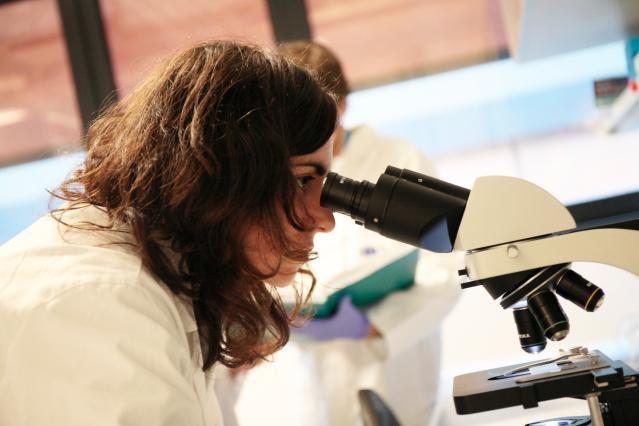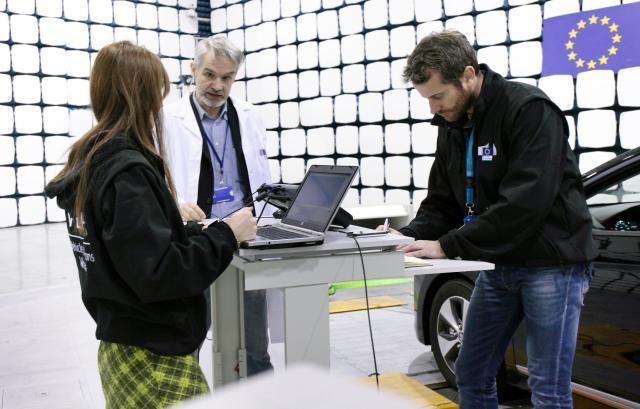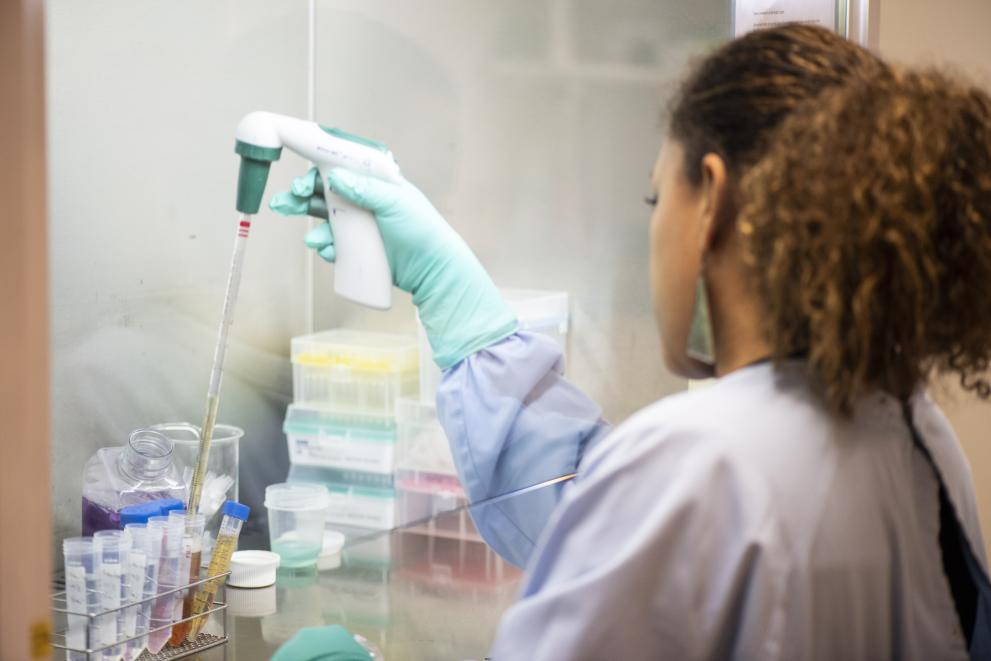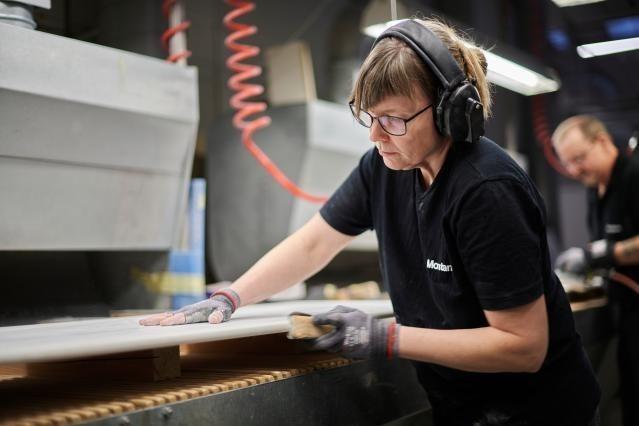The European Year of Skills will give a fresh impetus to lifelong learning, empowering people and companies to contribute to the green and digital transitions, supporting innovation and competitiveness.

Boosting competitiveness, participation and talent
Having a workforce with the skills that are in demand contributes to sustainable growth, leads to more innovation and improves companies' competitiveness. The European Year of Skills 2023 will help companies, in particular small and medium enterprises, to address skills shortages in the EU. It will promote a mindset of reskilling and upskilling, helping people to get the right skills for quality jobs.
The green and digital transitions are opening new opportunities for people and the EU economy.
Skilled workers will enjoy better job opportunities and fully engage in society. This is key to ensure that the economic recovery as well as the green and digital transitions are socially fair and just.

We need much more focus in our investment on professional education and upskilling. We need better cooperation with companies, because they know best what they need. And we need to match these needs with people's aspirations. But we also have to attract the right skills to our continent, skills that help companies and strengthen Europe's growth.
A fresh impetus for lifelong learning
The European Year of Skills will provide a new momentum to reach the EU 2030 social targets of at least 60% of adults in training every year, and at least 78% in employment.
The initiative will also help achieve the 2030 Digital Compass targets of at least 80% of adults with basic digital skills and 20 million employed ICT specialists in the EU.
Currently, more than three quarters of companies in the EU say they have difficulties finding workers with the necessary skills, while only 37% of adults undertake training on a regular basis.
The Digital Economy and Society Index shows that 4 out of 10 adults and every third person who works in Europe lack basic digital skills. Women are under-represented in tech-related professions and studies, with only 1 in 5 ICT specialists and 1 in 3 science, technology, engineering, and mathematics (STEM) graduates being women.
How we will make this happen
We propose – working together with the European Parliament, the EU Member States, social partners, employment services, chambers of commerce and industry, education and training providers, workers and companies – to step up and advance skills development on the ground.

Promoting higher, more effective and inclusive investment in training and upskilling.

Making sure that skills are relevant for labour market needs, including by cooperating with social partners and companies.

Matching people's aspirations and skill sets with opportunities on the job market, especially for the green and digital transition and the economic recovery.

Attracting skills and talent from third countries, including by strengthening learning opportunities and mobility and facilitating the recognition of qualifications.
The Commission will highlight relevant EU initiatives and funding, to support their take-up, implementation and delivery on the ground. There will be events and awareness-raising campaigns to support mutual learning of partners in up- and reskilling.
A special focus will be given to activate more people for the labour market, in particular women and young people, especially those not in education, employment or training.
EU initiatives to support skills development
For the European Year of Skills, the EU will build on many ongoing initiatives, including:
- The European Skills Agenda is the framework for EU skills policy cooperation and will continue to help individuals and businesses develop skills and to apply them.
- The Pact for Skills: with 1,000 members and 14 large-scale partnerships in strategic sectors, there are pledges to help upskill up to 6 million people.
- The Council Recommendations on Individual Learning Accounts and Micro-credentials help people to update or complete their skill-sets in a more flexible and targeted way.
- The EU Digital Skills and Jobs Coalition tackles the digital skills gap by bringing together all relevant partners to raise awareness and encourage training to boost digital skills.
- The European Digital Skills and Jobs Platform launched under the Connecting Europe Facility offers information and resources on digital skills, such as a self-assessment tool.
- The Structured Dialogue with the EU Member States on Digital Education and Skills discusses how to bring new digital technologies to education and help to improve digital skills.
- The New European Innovation Agenda proposes a flagship initiative and set of actions to create the right framework conditions for our talents.
- The European strategy for universities proposes several actions to develop high-level and future-proof skills for a wide range of learners, including lifelong learners.
- The roll-out of an EU Talent Pool and of Talent Partnerships with selected third partners will help match the skills of candidates to work in Europe with labour market needs.
EU funding for skills
Significant EU funding and technical support is available to investment in up- and reskilling:
- The European Social Fund Plus (ESF+) with a budget of more than €99 billion for 2021-2027 is the EU's main instrument for investing in people.
- The Recovery and Resilience Facility can support Member States' reforms and investments, including in the area of skills and jobs.
- The Digital Europe Programme's €580 million provide funding for the development of advanced digital skills and support the development of a talent pool of digital experts.
- Horizon Europe underpins skills for researchers, entrepreneurs and innovators notably through its Marie Skłodowska-Curie Actions, the European Innovation Council and the European Institute for Technology.
- Erasmus+ with a budget €26.2 billion also supports the personal and professional development of learners, staff and institutions in vocational education and training and also funds European Universities.
More programmes that can support skills development are: the InvestEU programme, the European Globalisation Adjustment Fund for displaced workers, the European Regional Development Fund, the Just Transition Fund, the Public Sector Loan Facility under the Just Transition Mechanism, the European Solidarity Corps, the Programme for Environment and climate action (LIFE), the Modernisation Fund, the Technical Support Instrument, and the Neighbourhood, Development and International Cooperation Instrument.

Timeline
- 7 March 2023
Political agreement by the European Parliament and Member States
- 9 February 2023
European Parliament adopts a report on the proposal for a decision of the European Parliament and of the Council on a European Year of Skills 2023
- 8 December 2022
Ministers in the Employment and Social Policy Council (EPSCO) agree on Council’s position on the proposal for a decision to designate 2023 the Europe Year of Skills
- 12 October 2022
Commission adopts its proposal for the 2023 European Year of Skills
- 14 September 2022
President von der Leyen proposes in her State of the Union address to make 2023 the European Year of Skills
Latest
- Harnessing Talent in Europe: a new boost for EU Regions
- Labour migration: Commission and Member States enhance cooperation to tackle shortages in the EU labour market
- Traineeships: Commission evaluation analyses impact of European quality framework
- Press release: Commission kick-starts work on the European Year of Skills
- Press release: The Pact for Skills expands to 1,000 members as it marks its second anniversary
